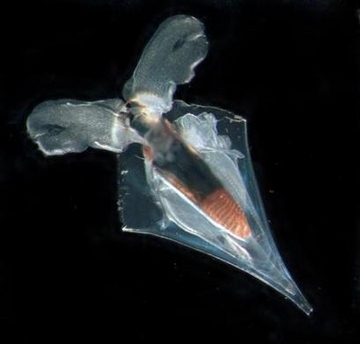 This looks like what we would imagine to be some kind of space alien.
This looks like what we would imagine to be some kind of space alien.By Alister Doyle, Environment Correspondent
OSLO (Reuters) - Scientists have found about 10-20 new species of tiny creatures in the depths of the Atlantic in a survey that will gauge whether global warming may harm life in the oceans, an international report said on Thursday.
The survey, of tropical waters between the eastern United States and the mid-Atlantic ridge, used special nets to catch fragile zooplankton -- animals such as shrimp, jellyfish and swimming worms -- at lightless depths of 1-5 km (0.6-3 miles).
"This was a voyage of exploration ... the deepest parts of the oceans are hardly ever sampled," said Peter Wiebe, the cruise's scientific leader and senior scientist at the Woods Hole Oceanographic Institution in the United States.
"We found perhaps 10-20 new species of zooplankton," he said of the 20-day voyage by 28 scientists from 14 nations in April.
Most life, including commercial fish stocks, is in the top 1 km of water, but the scientists said the survey showed a surprising abundance even in the depths. The survey will provide a benchmark to judge future changes to the oceans.







No comments:
Post a Comment